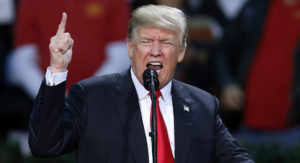Fifty years in a marriage is a big deal, I trust you’d agree.
It’s the “golden anniversary” of a couple’s taking vows to stay together “for as long as you both shall live.”
This year marks the 50th year since the occurrence of astonishingly important historical events. I hesitate to call many of these occurrences “anniversaries,” given that very word connotes a happy event. What we’re going to mark as this year progresses too often are much less than that.
For instance:
- On Saturday, it will be the 50th year since President Lyndon Johnson announced the suspension of bombing in North Vietnam — and then told the nation he “would not seek, nor … accept my party’s nomination for another term as your president.”
- This coming Wednesday marks the date 50 years ago that James Earl Ray assassinated the great Rev. Martin Luther King Jr., who was standing on that motel balcony. I’ll have more to say about that in a few days.
- Fifty years ago on June 5, 1968, U.S. Sen. Robert F. Kennedy — my first political hero — won the California Democratic Party presidential primary, only to be gunned down in a hotel kitchen pantry. More on that tragic day will come later as well.
- The summer of 1968 produced a bloody confrontation in Chicago as Democrats sought to nominate someone to run for the presidency. Vice President Hubert Humphrey won the nomination, but the story of that event was the bloodshed in the streets.
- The 1968 presidential election gave us Richard Nixon. The rest, as they say, is history.
- Finally, that tumultuous year came to a close with a glimmer of hope. Three men took off atop a Saturn V rocket and roared into space, toward the moon. They orbited the moon and on Christmas Eve, Americans heard these men — Frank Borman, James Lovell and William Anders — read from the Book of Genesis about the creation of our world. Borman, the mission commander, then wished “all the people on the good Earth” a Merry Christmas.
I will look back on that year as a time of tumult, terror and tempest. I also will remember it as a year that ended with the perfect salutation.









